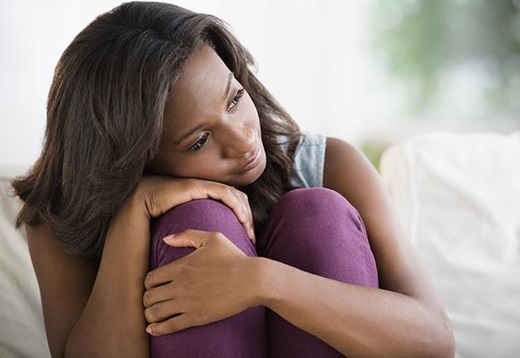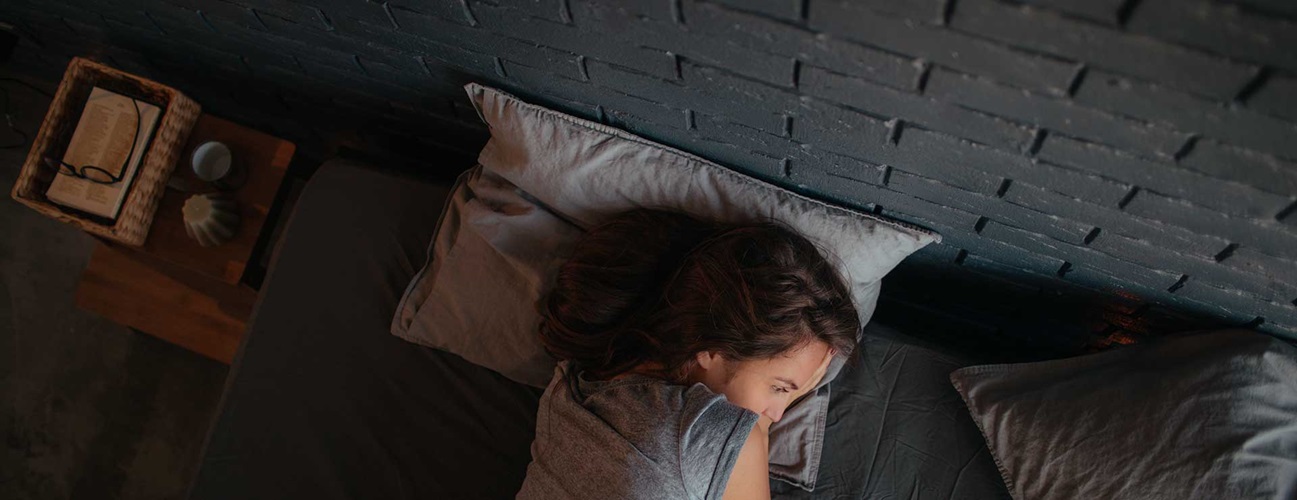Depression and Sleep: Understanding the Connection
Depression and sleep problems are closely linked. People with insomnia , for example, may have a tenfold higher risk of developing depression than people who get a good night’s sleep. And among people with depression, 75 percent have trouble falling asleep or staying asleep.

Which comes first? “Either one can be the starting point,” says Johns Hopkins sleep researcher Patrick H. Finan, Ph.D. “Poor sleep may create difficulties regulating emotions that, in turn, may leave you more vulnerable to depression in the future—months or even years from now. And depression itself is associated with sleep difficulties such as shortening the amount of restorative slow-wave sleep a person gets each night.”
If you have depression , daily stresses—such as financial worries, an argument with your spouse, or a jam-packed evening commute—could also lead to more nighttime wake-ups and more trouble getting back to sleep than someone without depression would experience.
Understanding the relationship between insomnia and depression can help you spot risks early, get the right help, and recover more fully if you are experiencing both. You’ll feel healthy, well-rested, and able to enjoy life again. Here’s what you need to know about depression and sleep:
Take sleep problems seriously.
You should tell your doctor if you:
- have trouble falling or staying asleep
- feel tired during the day
- have physical pain, discomfort or other complaints (for instance, signs of obstructive sleep apnea or pauses in breathing at night) that prevent you from getting a good night’s sleep
Treatments such as cognitive behavioral therapy for insomnia and continuous positive airway pressure (CPAP) devices for apnea can restore good sleep, helping you sidestep related conditions like depression. (People with sleep apnea have a fivefold higher risk of depression.)
Stay alert for signs of depression.
These include feeling hopeless, helpless or sad; trouble concentrating and remembering things; loss of energy; daytime sleepiness; loss of interest in activities that once gave you pleasure; or thoughts of suicide or death. Tell your doctor if you have any of these. (Call 911 if you have thoughts of suicide.)
This is especially important if you’re discussing insomnia with your doctor. “Insomnia may be a separate condition or it may be a symptom of depression,” Finan explains. “Your doctor needs to know as much as possible to treat the right problem.”
Get help for both depression and sleep.
If you have insomnia and depression, don’t assume that medical treatment for one will automatically cure the other. Treatments for depression, such as selective serotonin reuptake inhibitors and other medications, may improve your mood and outlook, but they may not be enough to improve your sleep.
There’s some evidence that lingering sleep problems in people undergoing depression treatment increase the risk of a slide back into depression. The good news: There’s also some early evidence that CBT-I (cognitive behavioral therapy for insomnia), along with depression treatment, improves sleep in people with depression and may increase the chances of a remission of depression.
Poor Quality Sleep Reduces Resilience
In a recent Johns Hopkins study, healthy women and men whose sleep was interrupted throughout the night had a 31 percent reduction in positive moods the next day. “Sleep interruptions interfere with deep, restorative slow-wave sleep,” explains lead researcher Patrick Finan, Ph.D. Ongoing insomnia could increase a person’s risk of depression, he says, by weakening their emotional resilience—the buffer of positive emotions that helps people deal with stress and challenges of life.






